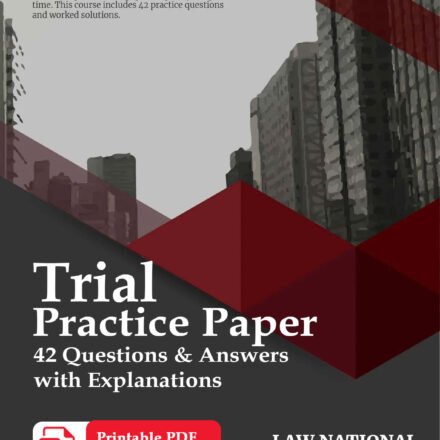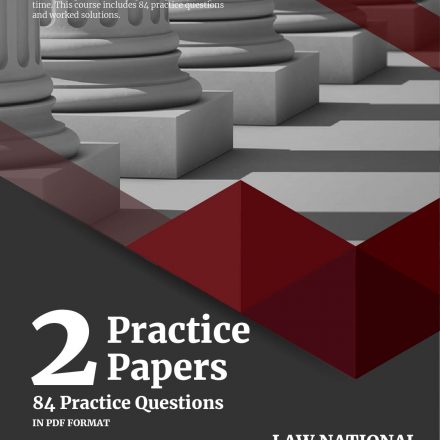The Law National Aptitude Test (LNAT) is a critical exam for many law school applicants, as it helps universities evaluate candidates’ aptitude for studying law. As the LNAT requires a specific skill set, it’s essential to understand the best strategies for success. In this article, we’ll discuss the top tips for LNAT exam success, from preparation to test-taking techniques.
Understand the test format and structure:
Before diving into preparation, familiarize yourself with the LNAT format and structure. The exam consists of two parts: a multiple-choice section with 42 questions (95 minutes) and an essay section where you’ll write one essay from a choice of three topics (40 minutes). Knowing the test structure will help you allocate study time effectively and develop strategies for each section.
Start preparing early:
The LNAT demands a solid foundation in critical thinking, reading comprehension, and essay writing. Begin your preparation well in advance to ensure you have enough time to develop these skills. Early preparation will also reduce stress and prevent last-minute cramming.
Develop critical reading skills:
The multiple-choice section assesses your ability to analyze and evaluate complex written arguments. To develop these skills, practice reading articles from reputable sources, such as newspapers, journals, or academic publications. As you read, identify the author’s main argument, supporting evidence, and any assumptions or biases. This will help you become comfortable with dissecting complex texts and answering the LNAT questions.
Hone your essay writing skills:
The essay section requires you to craft a well-structured, persuasive argument in response to a given prompt. Focus on developing your ability to write clearly, concisely, and coherently. Practice writing essays on a range of topics, both legal and non-legal, to gain familiarity with different types of prompts. Seek feedback from teachers, tutors, or peers to improve your writing.
Create a study schedule:
Organize your study time effectively by creating a study schedule. Dedicate specific blocks of time to critical reading practice, essay writing, and reviewing LNAT sample questions. Consistent study sessions will help you build the skills necessary for success.
Practice with sample questions and past papers:
Familiarize yourself with the types of questions you’ll encounter on the LNAT by practicing with sample questions and past papers. Analyze your performance to identify areas for improvement and adjust your study plan accordingly.
Develop time management skills:
Time management is crucial for LNAT success, as both sections have strict time limits. During practice, time yourself to simulate the exam conditions and develop strategies for managing your time effectively. In the multiple-choice section, learn to skim-read passages to quickly grasp the main points. In the essay section, plan your response before you start writing to ensure you have a clear structure and can finish within the time limit.
Stay updated on current affairs:
While the LNAT does not require prior legal knowledge, being informed about current affairs can help you generate ideas and examples for the essay section. Regularly read newspapers, magazines, and online news sources to stay updated on relevant social, political, and legal issues.
Take care of yourself:
Don’t underestimate the importance of a healthy lifestyle during your LNAT preparation. Ensure you get enough sleep, eat well, and exercise regularly to keep your mind sharp and focused.
Stay calm and confident:
On the day of the exam, stay calm and trust your preparation. Remember that the LNAT is designed to assess your aptitude for law, not your existing knowledge. Approach the exam with confidence and a positive mindset, knowing you’ve put in the hard work to succeed.
Conclusion:
With diligent preparation, effective time management, and a focus on building critical thinking and writing skills, you can achieve success on the LNAT exam. Keep these top tips in mind as you prepare and remember that practice is key to building the necessary skills for the test. Stay committed to your study plan, stay informed about current affairs, and maintain a healthy lifestyle to ensure you’re mentally and physically prepared for the exam. By following these guidelines, you’ll be well on your way to acing the LNAT and securing your place at a top law school. Good luck on your journey to LNAT success!














